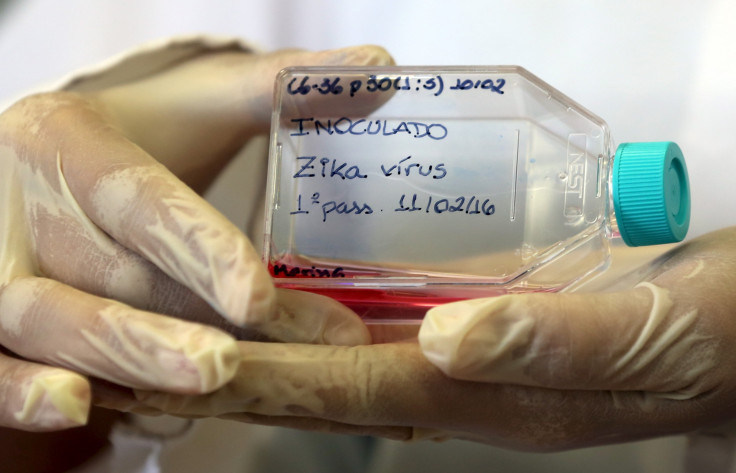Zika Virus Outbreak: First Case Confirmed In Washington State, Health Department Issues Advisory

The Washington State Department of Health confirmed Monday that a Mason County man in his 20s has tested positive for Zika virus. The Zika outbreak has so far spread in South and Central America, Mexico and the Caribbean.
The U.S. health department said in a statement that the man recently traveled to the South Pacific before returning to Washington. As of a report updated last week by the Centers for Disease Control and Prevention, there were at least 35 reported cases of travel-associated Zika virus in addition to nine cases that were locally acquired outside of the country but in U.S. territories. The other states that have reported Zika cases are Arkansas, California, Florida, Georgia, Hawaii, Illinois, Massachusetts, Minnesota, New Jersey, Texas, Pennsylvania and Virginia.
“Because many people travel to and from places where Zika is spreading, we’ve been expecting to have imported cases of Zika virus disease,” Dr. Scott Lindquist, State Epidemiologist for Communicable Diseases for the Department of Health, said in a statement. “While the Zika virus is of greatest risk to pregnant women, it is understandably concerning to many of us. The good news is this virus spreads through the bite of a type of mosquito we don’t have in Washington state, so it is very unlikely that this virus would spread widely here.”
The Washington State Department of Health urged anyone considering traveling to countries where the virus has spread to be aware of the need to protect themselves and others from mosquito bites. Health officials also urged pregnant women to delay their travel plans. The virus, which usually is transmitted by mosquitoes, is linked to brain deformities in babies.
“Zika virus is almost always a very mild illness. About 80 percent of those infected never show symptoms of the disease, while about 1 in 5 people will have only mild symptoms, including fever, rash, joint pain, and red eyes that last a few days to a week,” the health department said.
Health officials in Dallas reported a case earlier this month where a patient had sex with someone who tested positive for the virus after traveling to Venezuela. It is the first known case of the virus being domestically acquired in the country, according to the CDC, which has since updated the Zika virus guidance for pregnant women.
"Until we know more, if your male sexual partner has traveled to or lives in an area with active Zika virus transmission, you should abstain from sex or use condoms the right way every time you have vaginal, anal, and oral sex for the duration of the pregnancy," the CDC guidance said.
The risk of Zika virus affecting pregnant women by causing an increased risk of severe cranial deformity in babies, that can be fatal in some cases, has resulted in an urgent debate in Latin American countries that have very restrictive laws on abortion.
© Copyright IBTimes 2024. All rights reserved.





















